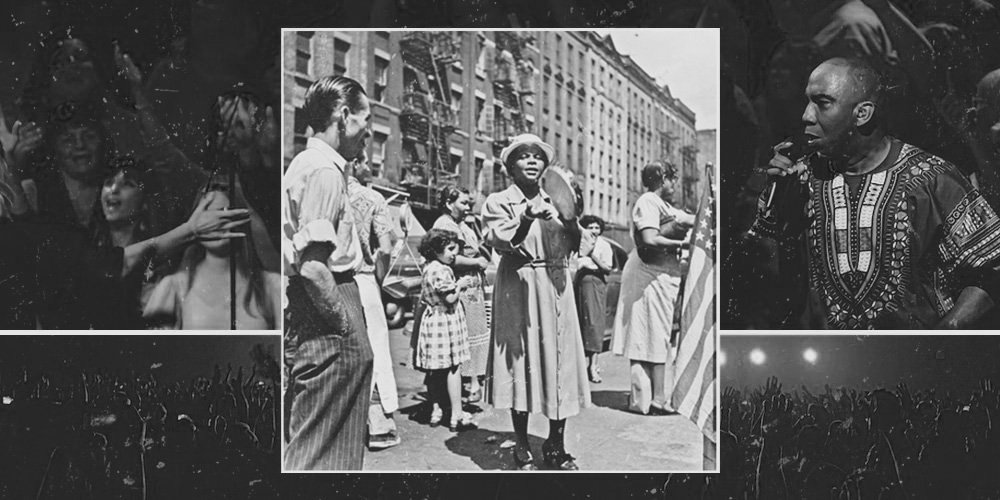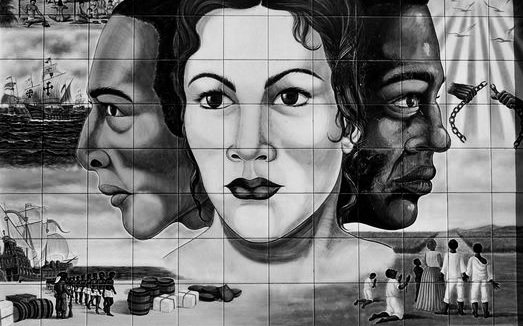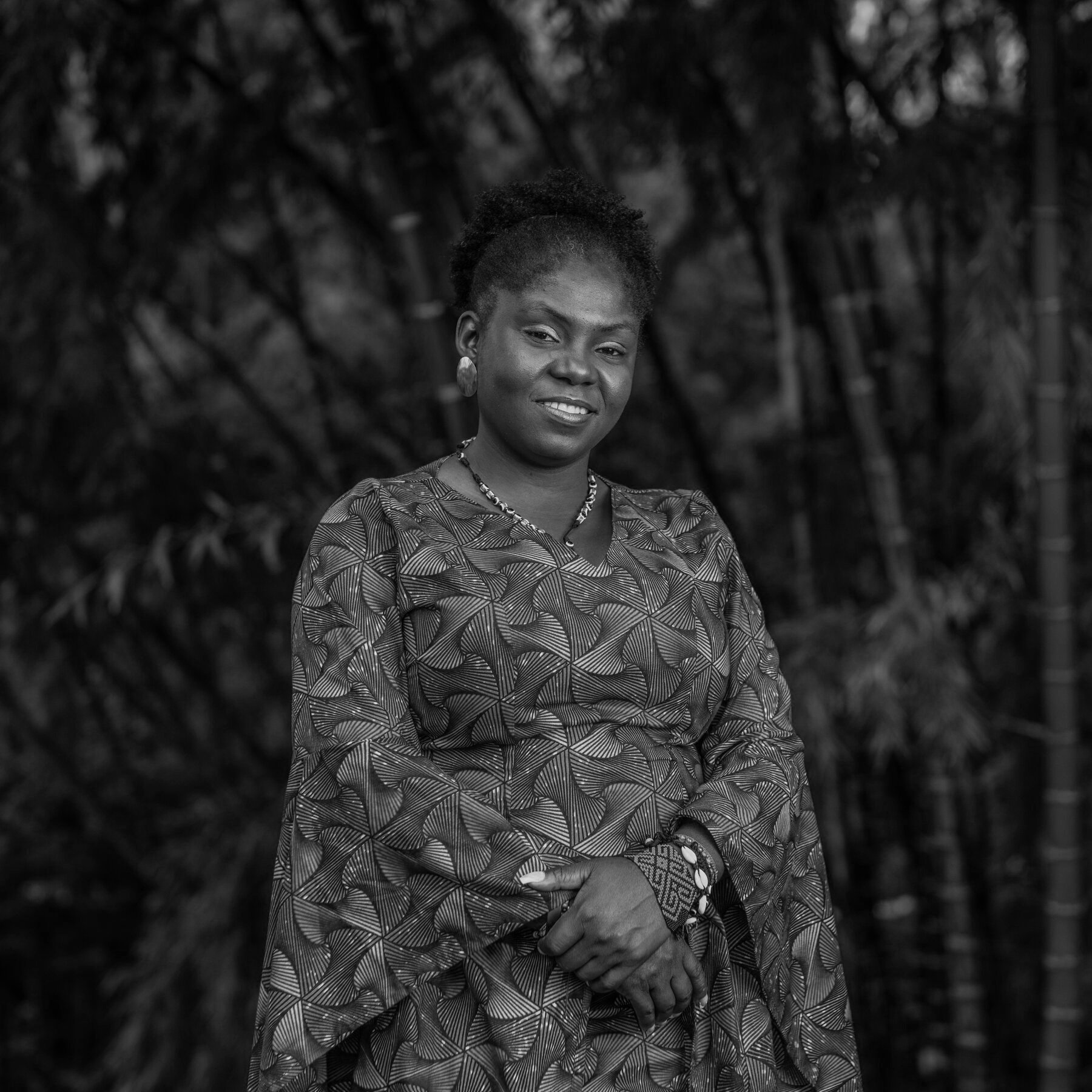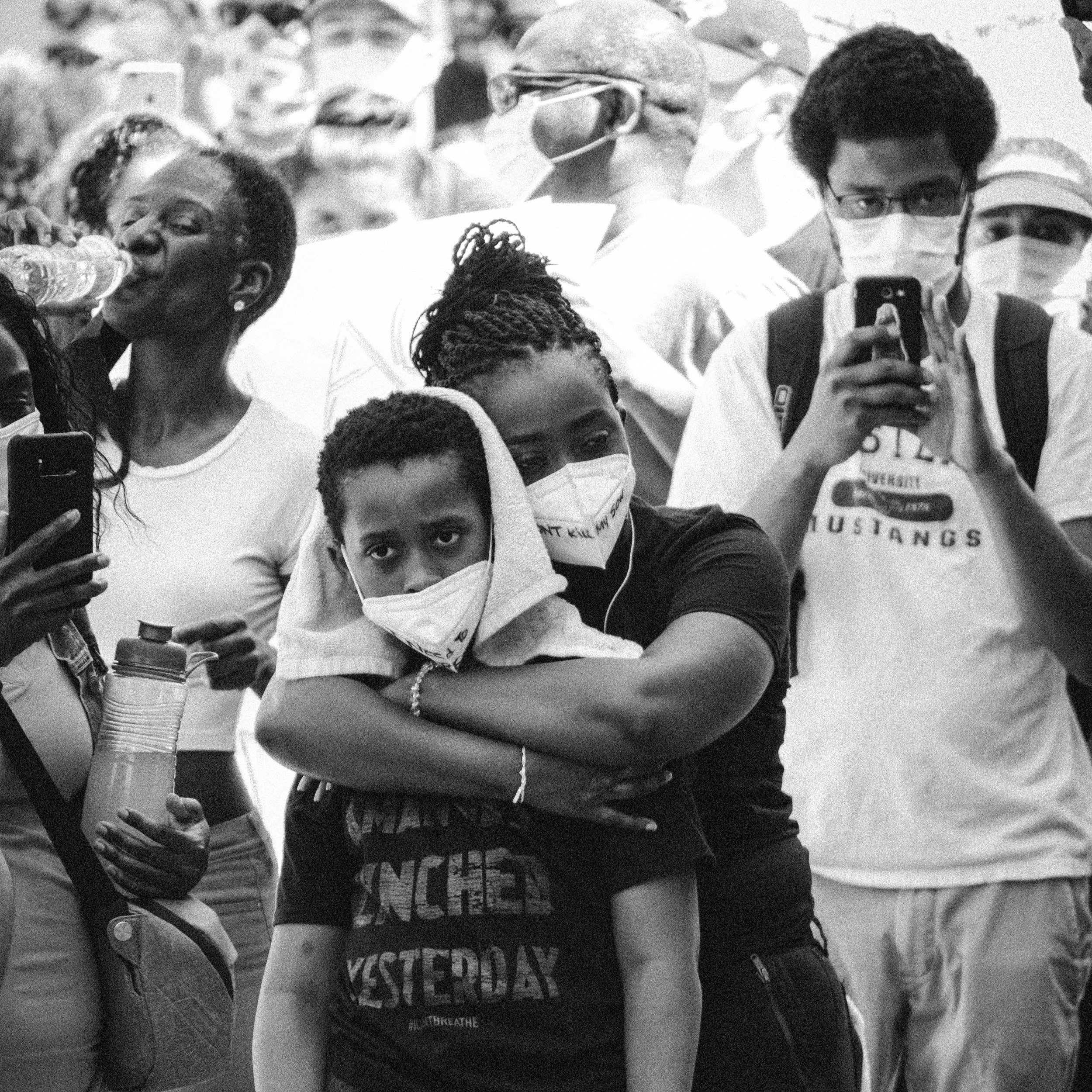
Living the Faith: The Role of Catholic Social Teaching in Our Lives
When I thought about the Church’s universal call to holiness, it made me reflect on how uniquely positioned Black people are to understand and fulfill Christ’s mission. An understanding that I believe is embedded in the collective DNA of the globally marginalized. Like us, Jesus was/is not white. Despite what most religious depictions of Him would have us believe, scriptural descriptions and the fact that he was born in modern day Palestine, makes this impossible. Like Jesus, many of us know what it is like to be immigrants and refugees.

The Body as Belief: A Response to Maria Magdalena Campos-Pons' "Behold"
I see Maria Magdalena Campos-Pons’s work, by and large as a dynamic comingling of the spiritual in art; but also, and in a very real way, a genuine example of how through attention and intention, artistic methodologies can engage with, participate in, and do the work of theology.

"God, I Have Some Questions": Re-reading Genesis 3 with Danbala and Ayida on Saint Patrick’s Day
As a Haitian American and Black American with Pentecostal and Vodou roots, the snake is both as mundane as any other reptile and as spiritual as the very serpent hanging around the Tree of Knowledge of Good and Evil. Yet in holding myself accountable for the destruction of the earth and the ways Christianity has played a role in the current climate crisis, I find myself thinking things over about the Serpent from Eden and the ways it informs the inseverable connection between spirituality and the earth and her snakes.

My journey to spirituality: years of struggle confusion and clarity
My life started to become better as I tended my spiritual altar called a boveda. However, I felt incomplete. Thoughts of my Garifuna heritage and spirituality were always lingering but had no idea how to begin that leg of my spiritual journey. I did know, however, that I did not want to proceed in any other tradition before paying due homage to my own first.

The Sacredness of Black Lives: A Reaction to Harmonia Rosales’ "Master Narrative"
Harmonia Rosales is asking us to change the master narratives we hold within and that we tell ourselves, even as Black people. She is asking us to look at the divinity of Black Lives, not only in Black depictions of deities, but in depictions of quotidian Black people. She is communicating to all visitors that Blackness is divine, and that Blackness is sacred. This aspect, the sacredness of Blackness, is not usually mentioned by any of the narratives we traditionally hold.

A Look into the World Premiere of Faith in Blackness: An Exploration of Afro-Latine Spirituality
One of the last questions of the panel asked us to define the film and the discussion by completing the phrase, “Faith in Blackness is…”. For us, faith in Blackness is staying in your body. Faith in Blackness is love. Faith in Blackness is necessary. Faith in Blackness is unwavering. And it is enough in itself. A positive affirmation of Blackness that sees the identity of Afro-Latines as central to our religious practice introduces a world of possibility.

AfroLatine Worship
Music that hails from Latin America or is made by Latino/as is so influenced in African rhythms that to deny this should be considered illogical. From Merengue to Cumbia to Tango, all our music, and even the names of the genres, are African Based. The music that we colloquially know as Salsa is composed of many rhythms which we know hail from African and Afro-Cuban roots. Most of our music has so much Africanity in it that it’s sound can’t be any more influenced by the African Diaspora.

Latinx: From Looking Black to Being Black
I once showed up in the world as a black-appearing man. Yet now, I’m simply a black man who embraces beauty in multiple variations: Kinky. Wide. Melanated. Soulful. Ebony. Brilliant. Griot. Earthy. As loud as, “I’m black and I’m proud.” As subtle as the dark matter that holds our galaxy together.

AfroLatinidad & Pentecostalism
Just like my great-great grandfather, there are many stories of Latino/as of African Descent who became early converts to Pentecostalism and helped its spread throughout the Americas. These stories are not usually highlighted but are important to our understanding of Pentecostalism because they help us see it as a movement that “has been a home to the people’s cultures and to marginalized groups”[2] and one such group has been Afro-Latino/as.

Our Hair: Creative Theological and Perverted Body
The different and creative capillary styles of many Afro-Latin American women (Afro-Caribbean, African American) have allowed us to redefine our existence in the Amerikkkan continent.

White Supremacy And Presidential Elections In Colombia
Francia Marquez represents the face of a country with historical memory. Thanks to the brave presence of Marquez, Colombia can recognize and confront its history by seeing someone like her on the ballot.

AMOR NEGRO
¡Sazón, sabor, un aleluya!
flavor, taste, a hallelujah
A hallelujah to be Black
¡Alabanza!

Unidos por siempre: Why we need to teach Afro-Latine theological perspectives
We know that Afro-Latines are present, we see them in our churches, we know they attend our institutes but we often do not allow their lived experiences, their faith and their navigating of the world to inform our theological perspectives that come from a Latine perspective.

Reflections on Afro-Latinidad
My Blackness is a truth that simply cannot be separated from my Latinidad, yet at the same time, my Latinx community refuses to fully address its existence.

El mensaje de mi gente: The Need for Developing an Afro-Latine Theology
There is a need for us to develop an Afro-Latine Theology. A theology that informs us what the faith, experience and spirituality of Afro-Latines is and why it is inimitable.
